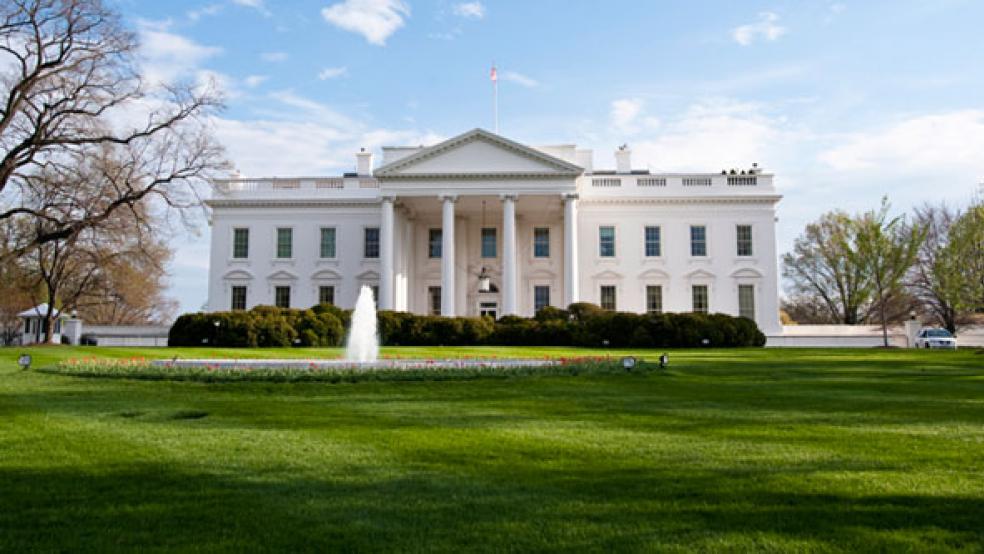We’re at that point in the run-up to the 2016 elections when the U.S. electorate feels comfortable with two candidates at the top of the major party polls whom a majority of the public not only don’t trust, but don’t even like very much.
Yes, the state of the American electorate is confused.
Related: Trump’s Net Worth Isn’t His Only Claim That’s Fake
Exactly one week away from the first official Republican primary debate, the candidate leading the GOP pack is loudmouthed billionaire Donald Trump, who is broadly disliked by most of the U.S. public (27 percent to 59 percent favorable/unfavorable), for whom 30 percent of his own party say they would “definitely not” vote in a general election, and who loses in head-to-head polling against every Democrat who currently has a prayer of getting that party’s primary nod.
Democrats, meanwhile, have coalesced behind former Secretary of State Hillary Clinton, who also suffers from overall negative approval ratings with the American people (40-51 favorable/unfavorable). She clobbers Trump in head-to-head polling, but Clinton is within the margin of error in similar matchups with all of the other top Republicans. That is significant because, considering the likelihood that Trump’s candidacy will eventually flame out, one of them is currently likely to be the nominee.
The data, from a Quinnipiac University national poll released early this morning, only gets stranger. When asked what their primary criteria for selecting a president are, the top two characteristics voters said they are looking for is “honest and trustworthy” and “cares about the needs and problems of people like you.”
At the moment, the frontrunners for both parties, Trump and Clinton, score dead last among top candidates on both of those characteristics. This is largely explained by partisan differences in how each candidate is perceived, but still raises questions about the viability of both in a general election.
Related: Why Hillary Clinton’s Tax Plan to Soak investors Won’t Work
The trust question in particular is ugly for both. Only 33 percent of the public believes Donald Trump is honest and trustworthy, compared to a large majority of 58 percent who don’t. Clinton fares better, but only barely. Thirty-seven percent of the public view her as honest and trustworthy, while 57 percent – almost as many as Trump – say she is not.
“Republicans say Trump is honest and Democrats say Clinton is honest, but among all voters, both candidates come up short,” said Tim Malloy, assistant director of the Quinnipiac University Poll. “How can you become a general election front-runner if most voters don't trust you?”
Republican voters have, by far, the larger field of candidates to choose from, which is why Trump is the frontrunner with a relatively modest 20 percent of the vote in the poll, conducted between July 23 and July 28.
Trailing Trump in the Republican field were Wisconsin Gov. Scott Walker at 13 percent and former Florida governor Jeb Bush, who has raised more money than any other candidate in the field, at a surprisingly humble 10 percent. Below them was a logjam of candidates stuck at six percent: former neurosurgeon Ben Carson, former Arkansas Gov. Mike Huckabee, Kentucky Sen. Rand Paul, and Florida Sen. Marco Rubio.
Related: Joe Biden – The Looming Threat to a Republican Presidency
Both Bush and Walker peaked in the March Quinnipiac Poll, with Walker at 18 percent and Bush at 16. While both had fallen to 10 percent by May, Walker has rebounded somewhat while Bush remains barely in double digits. (To be fair, it should be noted that the margin of error for questions asked of Republican and Republican-leaning voters is 3.7 percent.)
The candidates’ relative positions in national polling are key to determining who will win a spot on the stage in the first GOP debate next week. Host Fox News has limited the field to the top 10 candidates in an average of recent national polls. While the Quinnipiac data is not definitive, this particular result would give spots to Trump, Walker, Bush, Carson, Huckabee, Paul, Rubio, Texas Sen. Ted Cruz (5 percent), Ohio Gov. John Kasich (5 percent), and New Jersey Gov. Chris Christie (3 percent).
Kasich is perhaps the most surprising performer in this poll, having leapfrogged a number of candidates after making a relatively late official announcement of his candidacy last week. The most prominent candidate left off the main stage (a second tier debate will be held hours before the main event) is former Texas governor Rick Perry, who is mired at 2 percent, in a tie with Louisiana Gov. Bobby Jindal.
Among the Democrats, Clinton leads the field with 55 percent of her party’s vote, trailed by Vermont Sen. Bernie Sanders at 17 percent, and Vice President Joe Biden, who has not said that he is a candidate, with 13 percent. None of the other candidates, including former Maryland governor Martin O’Malley, are above one percent.
Related: Clinton Promises All American Homes Will Run on Alternative Energy
In head-to-head matchups against the other party, the top contenders in both the Republican and Democratic fields fare poorly.
Trump loses to Clinton 36 percent to 48 percent. He likewise loses to Biden 49-37, and to Sanders 45-37.
While she might take some small comfort in besting Trump, Clinton’s numbers against the rest of the GOP field aren’t so good. The former secretary of state barely gets by Walker, 44 percent to 43 percent and falls to Bush 42-41. (The margin of error in the poll questions asked of all voters was 2.4 percent.)





